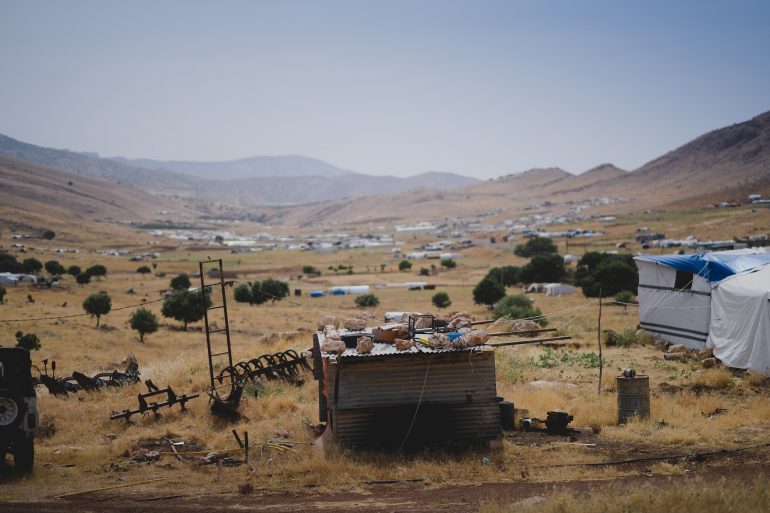The Iraqi Ministry of Migration and Displacement has refuted allegations of withholding social security and aid payments to Internally Displaced Persons (IDPs) in the Kurdistan Region on Tuesday. This comes in response to a claim made by the Kurdistan Region’s ruling party earlier this week.
“The ministry has no authority over the funds allocated for the social security of IDPs,” said Ali Abbas, spokesperson for the ministry, to NRT English. “In fact, there is very strong cooperation between our ministry and the Ministry of Labor and Social Affairs regarding this matter.”
This week, a spokesperson from the Kurdistan Democratic Party’s federal parliamentary bloc, Vian Dakhil, accused the Ministry of Migration and Displacement of withholding payments to IDPs in the Kurdistan Region’s displacement camps. In a tweet, Dakhil condemned the ministry’s decision as “cheap and unacceptable blackmail,” straying “far from human values”.
She added that the Minister of Migration persisted in her methods of pressuring the displaced people by withholding the monthly foodstuffs allocated to them, which she suggested might force them to return to areas where their lives could be in danger.
The Kurdistan Regional Government (KRG) and the Iraqi government have been at loggerheads over the return of IDPs in the Region’s camps. Iraq began to close IDP camps across the country in 2020, a move condemned by Amnesty International, who advocated for the voluntary return of IDPs.
As it stands, al-Jada camp in Ninevah province remains the only camp still operational in the country, excluding those in the Kurdistan Region.
The Iraqi government has repeatedly called for the return of IDPs to their homes, a move deemed unsafe by the KRG. The KRG has maintained that they will not prevent anyone from returning to their places of origin, but they will not enforce such returns by closing the camps. It has previously faced accusations from rights groups of forcibly preventing IDPs from returning to their areas, a claim refuted by the KRG Coordinator for International Advocacy, Dindar Zebari. The KRG has consistently maintained since that report was published that this practice does not occur anymore.
Most of the displaced individuals in the Kurdistan Region’s camps are either Yazidis or Sunni-Muslims from Ninevah province.
In October 2020, Baghdad and Erbil reached a deal, known as the Sinjar agreement, outlining the necessary procedures for the return of the Yazidi people to their religious heartland. However, due to armed conflict and instability in Sinjar following the territorial defeat of the Islamic State in 2017, the Yazidi people have not been able to fully return home.
Various groups, including those affiliated with the Kurdish Peshmerga, the pro-Iran Popular Mobilization Forces (PMF), and the Kurdistan Workers’ Party (PKK), all maintain a military presence in Sinjar, hindering the implementation of the Sinjar agreement.
Under this agreement, the security of Sinjar falls under the responsibility of Baghdad. The Iraqi government is obligated to establish a new military force from the local population and ensure the expulsion of PKK-affiliated groups from the area. However, the PKK has gained popularity among locals following their assistance in rescuing the Yazidi people from IS.
In 2021, Human Rights Watch (HRW) called on Iraqi authorities to refrain from closing camps and pushing displaced people to return unless they provide durable solutions.


